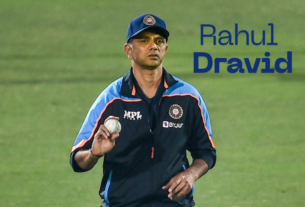Yogi Adityanath’s name has become synonymous with Uttar Pradesh’s (UP) remarkable transformation in recent years. Known for his distinct saffron attire and unflinching personality, Yogi Adityanath has risen from the status of a revered Hindu monk to one of India’s most significant political figures. This journey from a spiritual leader to the Chief Minister of UP is not only remarkable but also a story of dedication, discipline, and a commitment to societal change.
Early Life and Entry into Spirituality
Yogi Adityanath was born Ajay Singh Bisht on June 5, 1972, in Panchur, a small village in the Pauri Garhwal district of Uttarakhand, India. Coming from a humble background, he showed a deep interest in spirituality and service from an early age. This inclination led him to join the Gorakhnath Math, a Nath Hindu monastery in Gorakhpur, Uttar Pradesh, at a young age. Under the mentorship of Mahant Avaidyanath, he embraced a life of celibacy, spirituality, and service.
The monastic life helped Yogi Adityanath cultivate discipline, develop a unique style of leadership, and instill within him a vision for the welfare of society. His popularity as a spiritual leader grew rapidly as he began to engage in community service, initiating healthcare, education, and infrastructure projects for the underprivileged.
Political Career: From Monk to MP
In 1998, at the young age of 26, Yogi Adityanath took a significant step into politics. He contested and won the parliamentary seat from Gorakhpur as a candidate from the Bharatiya Janata Party (BJP), becoming one of the youngest Members of Parliament (MP) in India. This marked the beginning of a long political career that would see him retain the Gorakhpur seat for five consecutive terms, gaining the trust and support of his constituents.
Adityanath’s political strategies often centered on the themes of Hindu nationalism and societal reform. His straightforward and often controversial stance resonated with a significant portion of the electorate, helping him cultivate a reputation as a decisive, no-nonsense leader. Over the years, he strengthened his base in Gorakhpur and began implementing several welfare programs. These programs addressed local issues, including crime reduction, infrastructure improvement, and betterment of the healthcare system, which showcased his dedication to community development.
Founding of the Hindu Yuva Vahini
In 2002, Yogi Adityanath founded the Hindu Yuva Vahini, a youth organization aimed at promoting Hindu cultural values and social development. The group became highly active in advocating for the rights of marginalized Hindu communities and championed various social causes. While it drew both support and criticism, the Hindu Yuva Vahini helped Adityanath solidify his influence among the youth and build a broader network across UP.
The organization also became instrumental in mobilizing young voters, expanding his reach beyond Gorakhpur, and providing him with a grassroots base that would later support his vision for a transformed UP.
Rise to Chief Minister of Uttar Pradesh
Yogi Adityanath’s political journey reached a pivotal point in 2017 when the BJP, under the leadership of Prime Minister Narendra Modi, won a sweeping victory in the Uttar Pradesh Legislative Assembly elections. His reputation as a dedicated leader who could address UP’s issues, combined with his strong grassroots following, made him the chosen candidate for the Chief Minister’s role. On March 19, 2017, Yogi Adityanath was sworn in as the 21st Chief Minister of Uttar Pradesh.
His appointment was met with a mixture of excitement and apprehension. Known for his stringent approach to law and order, Adityanath soon set a tone of governance focused on transparency, development, and discipline. Within months of assuming office, he launched various reforms aimed at improving the state’s infrastructure, law and order, and social welfare.
Transformational Reforms in Uttar Pradesh
- Law and Order Improvement: One of Adityanath’s primary goals was to tackle the state’s notorious crime rate. His administration adopted a strict policy towards criminals, implementing measures that led to a significant reduction in crime rates. These efforts, though sometimes controversial, have largely contributed to a safer UP, encouraging investment and tourism.
- Economic Growth and Job Creation: The UP government under Yogi Adityanath focused heavily on attracting investments to boost the economy and create jobs. The “UP Investors’ Summit” in 2018 and 2019 resulted in substantial business commitments, with companies investing across sectors like manufacturing, technology, and agriculture.
- Infrastructure Development: Infrastructure improvement became a cornerstone of Adityanath’s agenda. Projects like the Purvanchal Expressway, the Gorakhpur Link Expressway, and various regional airports were launched to improve connectivity. The state’s transport network received a major facelift, which not only boosted trade but also enhanced tourism.
- Healthcare Initiatives: The Chief Minister took initiatives to improve healthcare services in UP, especially focusing on rural and underserved areas. The administration worked on strengthening the state’s health infrastructure and launched vaccination and sanitation drives, especially during the COVID-19 pandemic, showcasing its commitment to public health.
- Promotion of Religious Tourism: Adityanath also focused on promoting UP’s rich religious and cultural heritage. By developing Ayodhya as a spiritual and tourist center, along with initiatives around Mathura and Varanasi, he aimed to leverage the state’s heritage to attract both domestic and international tourists, which in turn boosted the local economy.
Challenges and Criticisms
While Yogi Adityanath’s tenure has been marked by many accomplishments, it has not been without challenges. His outspoken stance on Hindu nationalism has drawn criticism, with detractors arguing that it fosters communal tension. Balancing development with inclusivity has been a tightrope walk, and his governance style, particularly his emphasis on strict law enforcement, has sparked both praise and protest.
His handling of the COVID-19 crisis was also met with mixed reviews. Although the UP government implemented several measures to control the spread, the state’s sheer population size and economic challenges made pandemic management particularly complex.
A Vision for the Future
As Yogi Adityanath completes several years as Chief Minister, his vision for UP remains focused on making it a model state. His administration continues to work on developing infrastructure, generating employment, and enhancing security, with a special focus on making UP an economic hub in India. His efforts to streamline governance and promote investment align with his broader vision of a self-reliant and prosperous state.
The journey of Yogi Adityanath from a monk in Gorakhnath Math to the political helm of one of India’s largest states is an inspiring one. He has redefined what it means to be a leader in India’s contemporary political landscape, with his unique blend of spirituality and governance. His rise symbolizes a new wave of leaders who combine traditional values with a modern approach to statecraft, aiming to create positive, long-term change in society.
Conclusion
Yogi Adityanath’s success story is one of resilience, strategic vision, and a commitment to societal reform. His leadership in Uttar Pradesh has not only left a significant mark on the state but also on India’s political landscape. As he continues to navigate the challenges of governance, his journey serves as an inspiration to many who believe in the transformative power of dedicated leadership.





